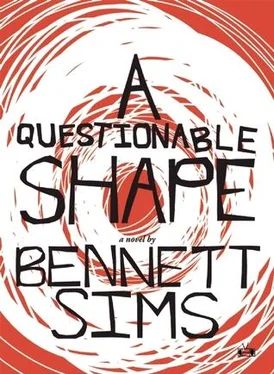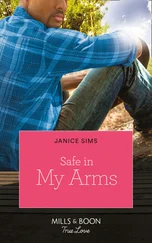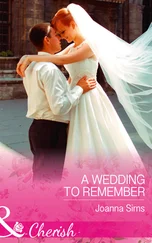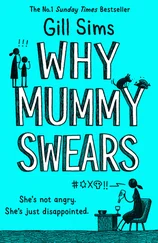I’ve also been thinking about Rachel, whose face has been growing increasingly distraught, and who has surely been imagining Matt putting a ‘bullet in the head’ of Mr. Mazoch. If she had heard him going on like this any earlier, there would have been no question of her condoning the search. And it’s been valiant of her — in light of the search’s failure, when all this rhetoric is empty and inconsequential — to refrain from bringing up his father. To keep the argument abstract.
I, too, would like to keep the argument abstract, and the final thing I’ve been thinking is how to explain Rachel’s point of view to Matt. Put it in terms he’d understand. I want to try to communicate her empathy for the undead — her respect for creation 78—without any more recourse to infected fathers or little Barbaras. So when he asks what I’ve been thinking, I ask in turn, ‘Have you read Homo Sacer ?’ ‘No,’ he says, ‘but I’ve played bisexual baseball.’ ‘No, like—’ ‘I’m kidding. Of course I’ve read Homo Sacer .’
But Rachel, as it turns out, hasn’t, so for her benefit I find myself drunkenly reconstructing Agamben’s argument 79before making my own point, which is that, basically, Rachel’s ethical unease regarding the reduction of the undead to something like bare life may after all be justified. ‘Because you can imagine exactly the kind of argument that Agamben would make: the undead occupy a “zone of indistinction,” a cloudy biological interstice, and it would be all too easy to dehumanize them, justifying anything from forced labor to genocide. Even if you reject the term “genocide,” you’re still talking about extinction. You’d be wiping out a new form of life in less than a year of its inception. Think of what scientists still have to learn from them: organisms of dead cells, creatures that persist beyond cell death. For all we know this could be a net evolutionary gain, the human race’s phylogenetic solution to mortality. So I think what Rachel’s saying is, “Hold on, let’s wait a minute — before we do anything rash why don’t we study this some more.”’ ‘And what I’m saying is that we don’t have a minute. We have approximately until hurricane season.’ ‘Yes, Matt, you’ve made it abundantly clear already that that’s what you’re saying.’ ‘The insane thing isn’t that walking corpses might be divested of their legal rights, Michael. That’s not the insane thing. The insane thing is that they haven’t been yet , that it’s been two months now and legal rights still adhere to them — walking corpses! — even as they decay on their feet. You don’t find that insane? True, the police aren’t going to conduct any murder investigations, if they find a slain undead in the streets. But by letter of the law you could be arrested for homicide. “Man”slaughter. That’s what’s insane!’ ‘The only people who have been or are going to be arrested for homicide are the sadists who lynch the infected. And you probably feel even as strongly as I do that lynch mobs shouldn’t be allowed to string stray infected up in trees. I hate to invoke families again — you seem to think it’s rhetorically illegitimate — but imagine if “little Barbara” walked outside and saw her undead father hanged, ten drunk men beating at him like a piñata. Or saw them pouring gasoline over him in the yard, setting him ablaze. These are the people who are and who will be arrested, not the families who quietly decide to put an undead relative to sleep.’ ‘What you—’
Rachel expresses her desire to be talking about something else, and in response we all stop talking. The room becomes sauna-like with silence, the quiet as thick and conspicuous as heat. I’m still thinking about what I was just on the brink of saying: I wanted to ask Matt how he would react, if it were Mr. Mazoch who had been taught to moan ‘Matt,’ or if it were Mr. Mazoch strung up in a tree. As for Matt, he’s probably still on his own brink.
Eventually he is the one to break the silence. Clearing his throat, he addresses me: ‘Mike,’ he says. ‘Matt,’ I say. ‘Listen,’ he says. ‘About my dad’s windows.’ I do some throat-clearing of my own. So he’s finally ready to confess about the windows: either to claim responsibility for them, or to admit that he never truly suspected his father. To spare him the awkwardness — and to keep him from divulging any need-to-know information that Rachel does not need to know — I try to cut him off. ‘Matt, I—’
‘I need to know who broke them,’ he says. Rachel sits up at this. ‘What?’ she asks. ‘Someone broke your dad’s windows?’ He wipes his palm in the air before him, as if washing a windowpane: ‘Right in the front of his house. First thing we saw Wednesday morning.’ ‘Oh, my God,’ she says. ‘I’m so sorry. I had no idea.’ ‘Mike didn’t tell you?’ ‘No,’ she says, looking confused. ‘It must have slipped his mind.’ Matt turns to me: ‘You didn’t run it by her?’ ‘Run what?’ I ask. ‘The extension. You said you’d run it by her.’ ‘You’d run what by me?’ Rachel asks. Before Matt can spill the entire miserable business to her, I interrupt him: ‘Matt, I thought you knew. This was our last day. This dinner .’ ‘No,’ he says, shaking his head. ‘No, I can’t quit now. Not yet. I need to give it more time. Just in Denham, just another week or so. You don’t have to come—’ Here he stops himself, for we both know this isn’t true. I do have to go with him. I can’t let him go alone. That’s the only reason he’s sharing this absurd plan with me: he knows I’ll insist on going with him.
‘“Extension”?’ Rachel repeats, narrowing her eyes at me. I wince. After everything Matt has said tonight, I realize how this must look to her. She must think that I have known all along about Matt’s violence (his genocidal rants, the volatility of his emotions, his clear and present capacity for patricide): that I have known about it but ignored it, turned a blind eye to it, even done my part to conceal it from her. She must think that I have been hiding the windows and the extension for the same reason. In short, that I have been Matt’s willing accomplice, accompanying him on a manhunt while downplaying all of its dangers. In a sense, of course, she’s right. That is exactly what I’ve been doing. There are things that I’ve been hiding from her: Matt’s violence, my doubts. And if he weren’t here right now, I’m sure I could explain it. Make her understand why I had to keep silent. But that’s not going to happen while he’s sitting there listening.
For now, I try to soft-pedal the extension: ‘It was just an idea Matt was floating,’ I tell her. ‘Hypothetically.’ I look to Matt for confirmation, but he is still shaking his head: ‘Mike, I told you. I need to know who broke them.’ ‘ You broke them!’ I almost shout, biting my lip just in time. He continues: ‘You don’t believe me about the windows. I know that. And it’s fine.’ ‘Matt, it’s not a matter of whether—’ ‘That’s fine,’ he repeats. ‘Because I can just go alone.’ ‘Alone?’ ‘I’ve been thinking about it,’ he says. ‘And I can’t quit now, even if you do. Not two days after the break-in, not with two weeks left till hurricane season. I’m going to Denham tomorrow. I told you, you don’t have to come—’ Again he stops himself, providing me an opportunity to rush in to his rescue. I look to Rachel for assistance, or permission, but now she is the one shaking her head. ‘Michael?’ she says. ‘You’re going?’
After a moment of strained silence, I splay my hands in helplessness. ‘Of course,’ I tell her. ‘You didn’t think I’d let him drive out there alone?’ I try to keep my tone breezy, smoothing over any hints of tension for Mazoch’s sake. ‘What’s a few more days?’ I ask. Rachel smiles weakly. ‘No, no,’ she says, like a gracious hostess, ‘a few more days. It’s nothing.’ ‘Really,’ Matt protests, ‘you don’t have—’ But Rachel cuts him off: ‘Michael’s right,’ she says. ‘You can’t go alone. It’s too dangerous.’ I can tell by her voice that she and I do not have the same danger in mind. It’s not Matt’s safety she’s worried about: it’s Mr. Mazoch’s.
Читать дальше












